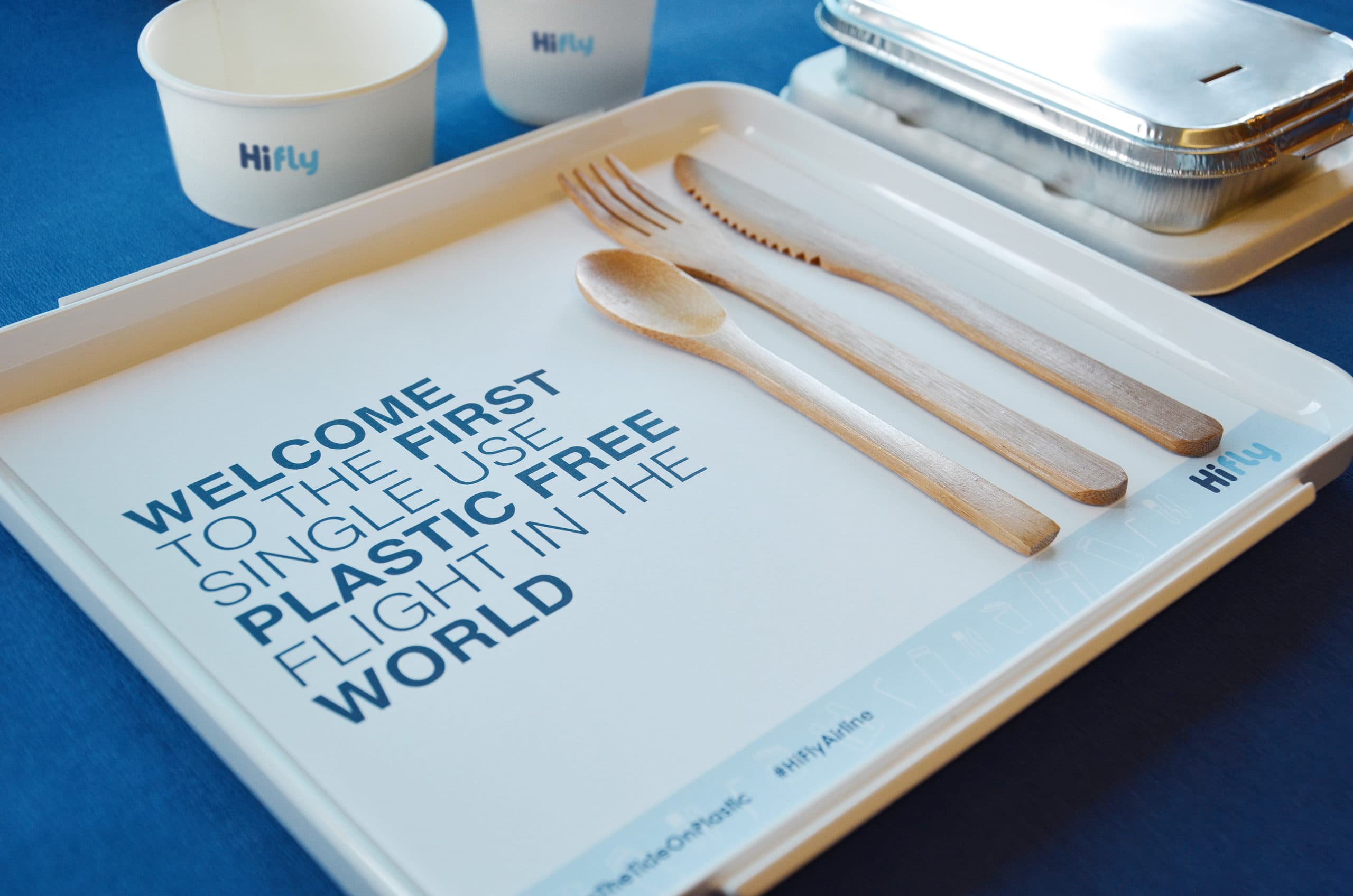Hi Fly on Course for Fleet-Wide Plastic-Free Flights
Share

After becoming the first airline to operate a flight free from single-use plastics in December 2018, Hi Fly aims to expand this sustainability initiative to its entire fleet by the end of this year.
Portuguese airline Hi Fly is on course to become completely single-use plastic free across its fleet by the end of this year. As part of its sustainability mission, the airline is also working with a number of unidentified startups that are developing products to replace single-use plastic items used in flight.
“We will certainly keep our vow to become single-use-plastic free on all Hi Fly flights by the end of this year,” confirmed a spokesperson for the Lisbon-based airline, which has a fleet of Airbus A319s, A321s, A330s, A340s and an A380.
In December 2018 and January 2019, Hi Fly became the first airline to operate a flight without single-use plastics when it conducted four flights between Portugal and Brazil with no single-use plastic onboard. The flights avoided the use of 350kg of plastic by replacing items including cups, cutlery, salt and pepper kits, sick bags, headset and hot towel wrapping, rubbish bags, plates, water and other beverage bottles, drawers, champagne flutes and gloves with items made from different materials. With 700 passengers flying on the plastic-free services, this equates to 500g of plastic avoided per passenger, the spokesperson said.
Plastic items were replaced with compostable eco alternatives such as plant-based catering disposables, bamboo cutlery, china, glass, steel, bamboo toothbrushes and plastic-free tooth powder. The bamboo cutlery, for example, is reusable up to 100 times. The biodegradable and compostable materials were collected by a certified food waste management company and used for energy production, while glass water bottles were returned to suppliers and paper and carbon materials were separated and recycled.
Hi Fly’s plastic-free and plastic-reduced flight campaign has involved 4,400 passengers and resulted in a total of 1,500kg in plastic avoided.
A further 1,150kg of plastic use has been avoided on 12 subsequent flights between Portugal and Brazil, which aimed for “significant” plastic reduction. Hi Fly says its plastic-free and plastic-reduced flight campaign has involved 4,400 passengers and resulted in a total of 1,500kg in plastic avoided.
While some plastic is easy to eliminate, such as the plastic wrappers on pillows, blankets, headsets and magazines, some items are harder to replace, the spokesperson conceded. “We are certain that additional solutions will arise for some of the items that are more difficult to replace and we are inclusively sponsoring some startups to invest their efforts in finding alternative materials to plastic,” the spokesperson said declining to provide details.
While airlines will have to pay more for non-plastic items initially, Hi Fly expects prices to come down as more airlines get on board. “We believe that once the industry starts implementing the concept, the prices of all sustainable alternatives will go down,” the spokesperson explained. “Every dollar that is invested in the fight against plastic is a well-spent dollar.”
Hi Fly hopes that many other airlines will follow its lead, anticipating early adopters will gain a competitive advantage as passengers are increasingly seeking sustainable options. This, in turn, will encourage other airlines to become more environmentally friendly. “We expect that within three years about 80% of the industry will be operating flights free of single-use plastics. That is our ambition and we think it is realistic to achieve,” the spokesperson insisted. “The reaction we are receiving from the industry and the general public enthuses our team to work hard towards that objective.”
Earlier this year, Hi Fly brought together industry stakeholders to discuss the issues at the Sustainable Cabin Forum, with airlines, suppliers, airports and industry bodies sharing good practices, challenges, learnings and initiatives.

